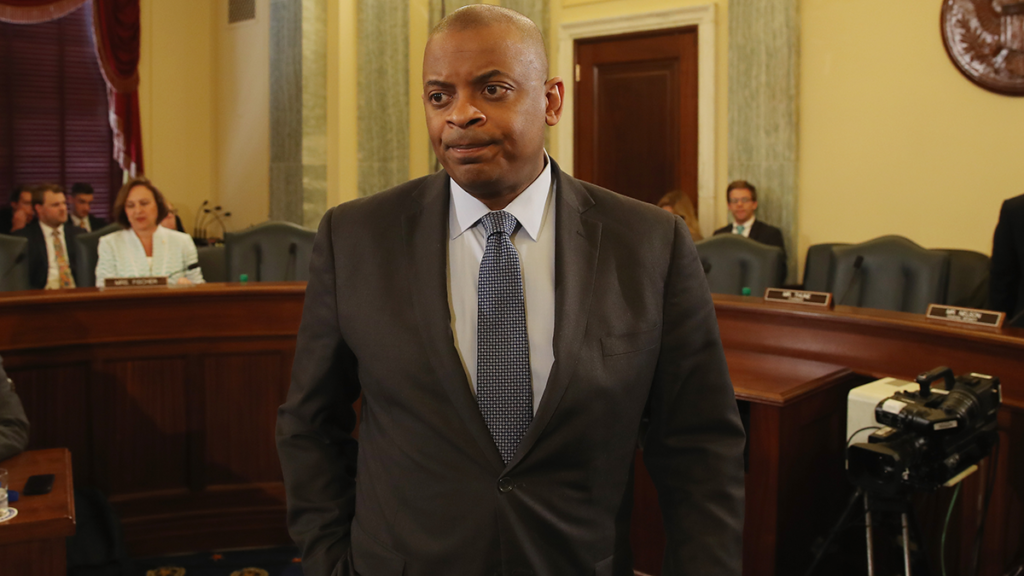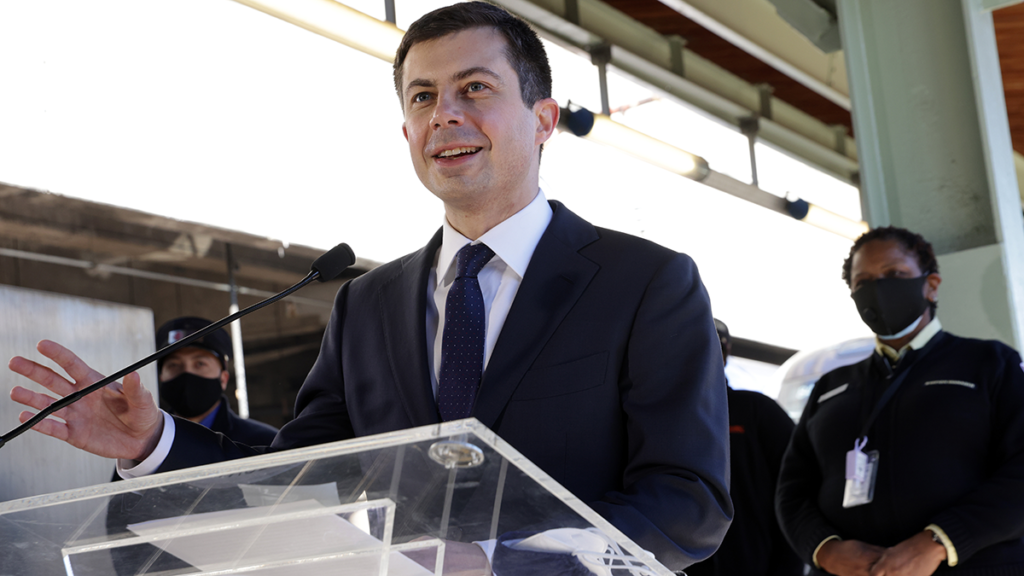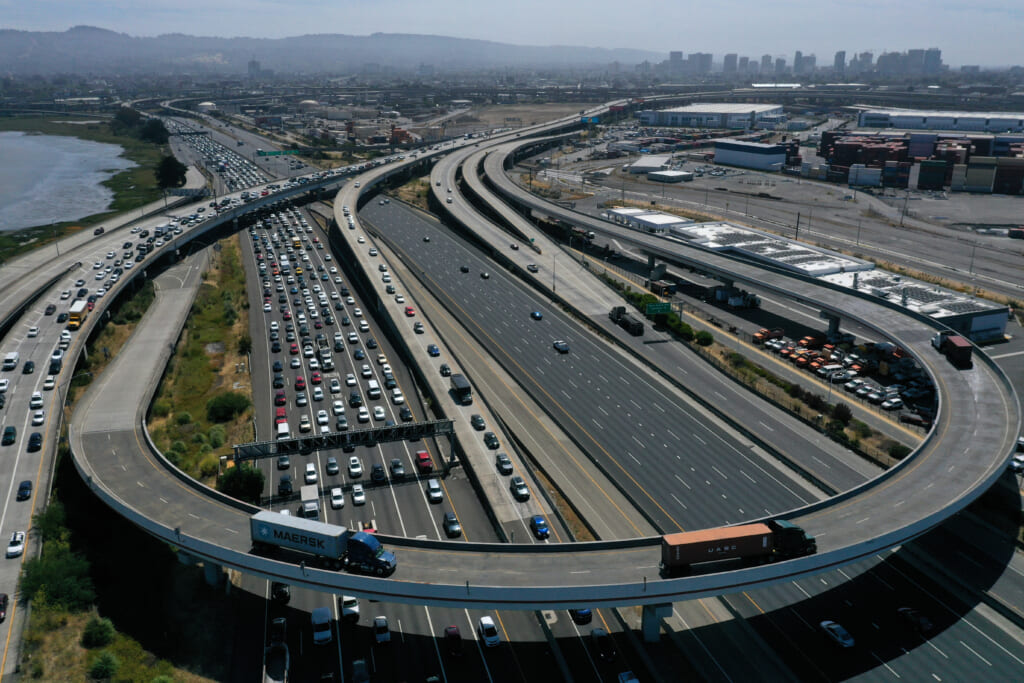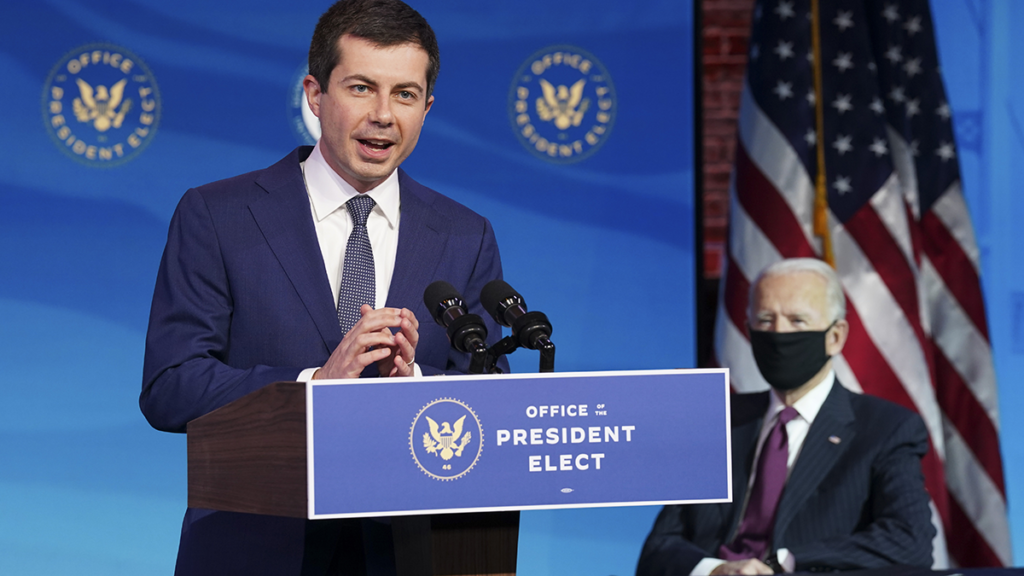Buttigieg says racism built into US infrastructure was a ‘conscious choice’
EXCLUSIVE: Transportation Secretary Buttigieg acknowledges 'there is racism physically built into some of our highways' as Biden touts $2.2 trillion proposal
Phase one of fixing the nation’s infrastructure is not just about some of the obvious: repairing potholes, bridges, roads, airports, schools, creating new power grids, replacing lead pipes and expanding broadband.
There are also efforts to correct America’s racist wrongs.
Equity is now being built into the soon to be updated black-and-white road maps of yesteryear. “If you think about it, much of this infrastructure was paid for and designed before the Voting Rights Act of 1965,” former Obama Transportation Secretary Anthony Foxx tells theGrio. “That was a time before Black people were at the table.”
Read More: Biden’s recovery plan to include infrastructure policy, expanded technology access

Foxx said the nation’s racial division also affected both cities and rural communities.
The former transportation secretary highlighted the inherent racism in America’s interstate and highway systems during his time as head of the department. “There is a long history that has not been fully excavated on the interstate system, our airports and different modes of transportation that in one way or another has divided this country,” says Foxx.
President Joe Biden’s 8-year $2.25 trillion infrastructure plan seeks to redesign the nation’s transportation system with equity in mind.
In an exclusive interview with theGrio, Biden Transportation Secretary Pete Buttigieg noted how in some cities there are overpasses that were built low in Black communities as well as racially dividing roadways.
“Well if you’re in Washington, I’m told that the history of that highway is one that was built at the expense of communities of color in the D.C. area. There are stories and I think Philadelphia and Pittsburgh [and] in New York, Robert Moses famously saw through the construction of a lot of highways,” says Buttigieg.

The work to correct the transportation equity issues will be funded by government contracting. Unlike in the Trump years, minority contracting is a large part of the Biden administration’s fix with its Justice40 Initiative. A White House fact sheet says its goal is to deliver 40% of “the overall benefits of relevant federal investments to disadvantaged communities and tracks performance toward that goal through the establishment of an Environmental Justice Scorecard.”
Buttigieg says former U.S. ambassador Susan Rice, who serves as director of Biden’s Domestic Policy Council, is in charge of the plan to begin equally distributing minority contracts.
Secretary Foxx, who was part of early discussions on transportation in the Biden presidential campaign in 2019, says the Biden plan is a “bold concept and long overdue.”
There’s also a targeted approach to bring jobs to the historically underserved in addition to literally striking down the road barriers that are dividing communities.

“Sometimes you hear folks say, well, look, we tried to find a Black business to bid on this project, but they just weren’t out there. Well, if that’s actually true, we got to take responsibility for why they’re not out there and build more businesses up that maybe exist,” Buttigieg tells theGrio, “but they haven’t been certified.”
“Maybe they haven’t been big enough to get the bonding or go through these hoops to even have a shot. They’re bidding on a federal project. We’ve got to work on all of that.”
Buttigieg says Ambassador Rice has been paying a lot of attention to this among other issues. “We’ve got to have intention,” he said.
When it comes to the matter of employment through these infrastructure projects, Cecilia Rouse, chair of the White House Council of Economic Advisors, tells theGrio the hope is to get the national unemployment rate down to 3.5% “by the end of the year.”

U.S. Labor Secretary Marty Walsh reaffirms the administration’s hope as he recognizes minorities are still hurting when it comes to employment. “All across America, we still have 8.4 million people out of work and in the communities of color, particularly the Black community, 9.6% unemployment rate, Latino community, Asian community, those disparities still remain,” Walsh tells theGrio.
When it comes to the current jobs status report for the nation, the latest numbers are “good news” for the Biden administration as they are focused on job creation with a hope of more drops in the unemployment rate.
However, when it comes to the historic nature of the Black unemployment rate, Walsh acknowledges racism has played a part in the unemployment numbers that have historically been twice that of white America. Walsh says there needs to be “real intention about the investments that are made there, and job training, workforce development, creating opportunities and pathways into the middle class for Black and brown people.”
As Secretary Buttigieg notes, “this wasn’t just an act of neglect,” adding that it was a “conscious choice.”

“There is racism physically built into some of our highways, and that’s why the jobs plan has specifically committed to reconnect some of the communities that were divided by these dollars,” he says.
A bipartisan meeting is slated in the Oval Office next week with congressional leaders on President Biden’s infrastructure plan. The meeting comes amid rising concerns about how to pay for the multi-trillion dollar plan. Republicans and some Democrats concerns about 15 years of corporate tax hikes that are targeted at paying for the plan. Democratic Senator Joe Manchin of West Virginia is opposed to the idea.
Secretary Buttigieg says President Biden is asking for a 28% corporate tax hike compared to 35% that was set in place before the Trump administration and Republicans passed the Tax Cuts and Jobs Act in 2017.
Have you subscribed to theGrio’s “Dear Culture” podcast? Download our newest episodes now!
TheGrio is now on Apple TV, Amazon Fire and Roku. Download theGrio.com today!
